Does anybody want to win the NL Central?
The Cardinals, Cubs, Brewers, Reds and Pirates aren’t exactly buzzing ambition. If anything this is the buzzkill division. Teams aren’t busy loading up on talent; they’re frantically offloading salaries.
In baseball’s quiet winter — well, except for those crazy-fun San Diego Padres — it can be stated that the NL Central is making noise. But division residents are drawing scrutiny for the wrong reasons. Instead of building on their rosters, the five teams are tearing things down.
+++ The Cardinals declined to pick up the 2021 option on two-time gold glove winner and leadoff hitter Kolten Wong (.350 OBP last season.) And modern-day franchise legends Yadier Molina and Adam Wainwright are free agents with an uncertain future in St. Louis. The Cardinals are boring.
+++ Last winter the Cincinnati Reds were a big story: a hyper aggressive, all-in challenger. A year later the Reds are disengaging. Since the end of the 2020 season the Cincinnati front office gladly left the door open to free agency for NL Cy Young winner Trevor Bauer, starting pitcher Anthony DeSclafani, nasty reliever Archie Bradley, shortstop Freddy Galvis, and good-bat catcher Curt Casali. One of the league’s toughest closers, Raisel Iglesias, was traded to the LA Angels. Big-strikeout reliever Robert Stephenson was shipped to Colorado.
+++ The Brewers haven’t been as blatant about dumping salaries. They’ve surprised the MLB pundit class by holding onto killer closer Josh Hader instead of trading him for a truck packed with prospects. (Of course that could change.) The Crew declined the $15 million 2021 option on aging slugger Ryan Braun. They moved on from starter Brett Anderson, reliever Alex Claudio and platoon-bat outfielder Ben Gamel and traded former closer Corey Knebel to the LA Dodgers. In fairness to the Milwaukee front office, the Braun decision wasn’t terrible. He’s 37, and injuries are an ongoing issue. That said, even in a down year, Braun provided league-average offense in 2020, and popped a .505 slugging percentage in 2019. In Braun, the Brewers have their own Waino-Yadi situation.
+++ The Pirates … well, they’re the Pirates. The latest salary toss happened over the weekend, when the Bucs traded first baseman Josh Bell to the Nationals for prospects. Bell blasted 37 homers and drove in 118 runs in 2019, but his numbers dropped in 2020. (Beware the small sample. After the 2021 season, Bell is eligible for salary arbitration, and a hefty raise, so the Pirates removed him from the Jolly Roger. This fit into a lengthening sequence of payroll-slashing transactions; in the last few years Pirates management has saved money by trading Starling Marte, Gerrit Cole, and Andrew McCutchen. In addition to sending Bell to Washington this winter, the Pirates freed themselves of their free-agent bound pitchers: starters Chris Archer and Trevor Williams and closer Keone Kela. The Buccos are 88-134 since the start of the 2019 season.
+++ As for the Cubs, there’s a reason why I saved them for last. This is the best and most improbable development in the division. What happened to the dynasty? After emerging as a feared and rising power in 2015, and winning it all in 2016, weren’t the North Siders supposed to roll through opponents on the way to a second or third World Series conquest? The Ricketts family ownership apparently had other other ideas: forget the baseball dynasty, and win the financial-dynasty game instead.
The Cubs traded their top starter, Yu Darvish, to San Diego on Monday night and shed the remaining $59 million on his contract. Earlier this offseason the Cubs declined to tender a contract offer to beloved bopper Kyle Schwarber, who became a free agent. They made the same decision on Albert Almora Jr. who joined Schwarber on the free agent line. They declined an option on veteran lefty starter Jon Lester. Another LH starter, Jose Quintana, went to free agency without receiving an offer from the club. As of now, the Cubs’ projected 2021 rotation consists of Kyle Hendricks, Zach Davies, Alec Mills, Adbert Alzolay and Colin Rea. (Davies was acquired, along with four prospects, in the Darvish trade.) Hendricks and Davies have a combined 297 big-league starts and 119 wins. The other three have 50 combined MLB starts and 16 wins.
The Cubs aren’t done. Who will be the next to go? Third baseman Kris Bryant, shortstop Javy Baez and first baseman Anthony Rizzo can become free agents next offseason. And the clock is ticking on catcher Willson Contreras; he enters his third arbitration year in 2022 (big raise coming) and can become a free agent before the 2023 season.
Since handing Darvish a massive six-year, $126 million free-agent contract before the 2018 season, the Cubs have signed only one free agent of note. And it was hardly a major investment; they gave the former Cardinals second baseman two years and $5 million before the 2019 season.
President of baseball operations Theo Epstein could easily see ownership’s new direction. He resigned from his job on Nov. 18. General manager Jed Hoyer moved up to the baseball-president role. He’s in charge of the baseball department. But he isn’t in charge of the franchise’s baseball funding.
The bold “Win Now” Cubs?
They’ll get back to you on that in a couple of years.
“In this job, you always have one eye on the present and one eye on the future,” Hoyer told reporters last month. “And the truth is that, given the service-time realities . . . I think that eye might be a little bit more focused toward the future than usual.”
The Cubs laid off more than 100 employees in response to revenue shortages caused by the impact of the COVID-19 pandemic. With no fans allowed at Wrigley Field, ownership claims to have been walloped by a $140 million net loss in 2020. Hell, things are so ominous in Wrigleyville, popular TV broadcaster Len Kasper defected from the Cubs and relocated to the South Side to take over as radio voice of the Chicago White Sox.
With all of the NL Central teams either slashing payroll or holding a firm line on costs, this division is up for grabs.
All of this downsizing is a downer.
But why not take advantage of the circumstances?
There are a few ways to look at this from the Cardinals’ standpoint:
1-If the Cardinals could just make a January jump into the market and use their financial clout to put some clout into an afflicted offense, they’ll take this division. I find it hard to believe that all of the people running these teams will remain dormant. We should expect at least a couple NLC organizations to get feisty at some point and strengthen their rosters. Not with massive contracts, or lottery-ticket gambles … but with smart and moderate good-value moves. The Cardinals should go first and revalidate their commitment to winning.
2-Then again, with NL Central rivals cutting salaries and cutting quality and not exactly fired up to throw dollars around, perhaps Bill DeWitt Jr. and John Mozeliak will have a reason to do nothing. Or next to nothing, anyway. They might win the division just by going with what they have, and counting on their young outfielders to exceed expectations.
3-The Cards’ have to keep their fan base in mind, and in heart. Pumping up the offense not only puts them in prime position to win the division — but a more proactive approach would energize the fan base, at least to some extent. And that’s important. The level of excitement depends on what the Cardinals do to give the roster some flair. The Cardinals have made it to the playoffs for the last two seasons, but the product has turned bland.
And yeah, I know … Covid uncertainty.
It’s not an easy time for roster planning and investments.
I hate to break it baseball owners, but it isn’t an easy time for many of their fellow citizens. I don’t think the owners have to worry about being kicked out of their house because the mortgage or rent payment is long overdue. I don’t think the owners have to fret about putting food on the table for their kids. Go ask a local restaurant owner about the excruciating pressure to save their business. No MLB teams will be going out of business.
If Cardinals management bypasses an opportunity to improve the lineup, and this team drags again offensively in 2021, I don’t think fans will have much sympathy. It’s been an awful time in America; the Covid has caused fear, feuding, illness, death, financial hardship, and a change in our customary way of life. It’s not as if the hard times apply only to MLB franchises.
It’s got to be maddening for Cardinals fans to watch the San Diego Padres go all out with a ravenous hunger to win. And it would be especially galling for fans to see Molina and Wainwright go to new teams and never return — unless it’s as a visiting player, or for a red-jacket ceremony.
The Cardinals don’t have to go loony with the spending in 2021. The baseball bosses aren’t very good at that, anyway. Management has a relatively simple mission: make an effort to show that they care by making an effort to win.
Thanks for reading …
–Bernie
For the last 36 years Bernie Miklasz has entertained, enlightened, and connected with generations of St. Louis sports fans.
While best known for his voice as the lead sports columnist at the Post-Dispatch for 26 years, Bernie has also written for The Athletic, Dallas Morning News and Baltimore News American. A 2023 inductee into the Missouri Sports Hall of Fame, Bernie has hosted radio shows in St. Louis, Dallas, Baltimore and Washington D.C.
Bernie, his wife Kirsten and their cats reside in the Skinker-DeBaliviere neighborhood of St. Louis.



